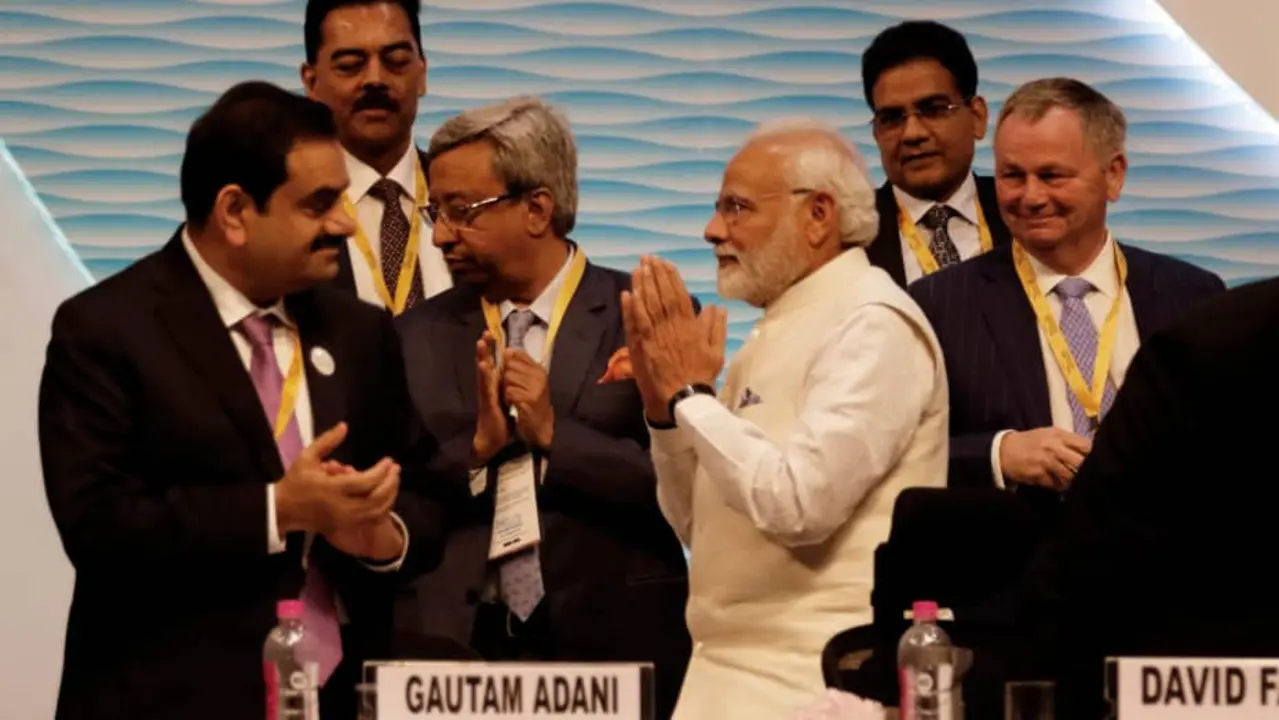Exploring George Soros' Concerns Over India's Political Climate
George Soros, the billionaire investor and philanthropist, has expressed concern over India's current political climate. He has warned that the country is facing a “dangerous situation” due to the increasing authoritarianism of the ruling party, the Bharatiya Janata Party (BJP).
Soros has raised concerns about the potential consequences of the BJP’s policies, which he believes could lead to the “erosion of democracy” in India. He has highlighted the BJP’s restrictions on civil society organizations and its crackdown on the media and press freedom. He has also spoken out against the BJP’s attempts to control the electoral process and its tightening of control over the judiciary.
Soros has pointed out that the BJP’s policies have had a negative impact on India’s economic growth, leading to a slowdown in the nation’s growth rate. He has criticized the government for its failure to tackle poverty and inequality, as well as its neglect of the environment. He has also expressed concern about the government’s crackdown on civil society organizations, which he believes is a threat to India’s democracy.
Soros has argued that the BJP’s policies are leading India away from its democratic tradition and towards an increasingly authoritarian state. He has warned that these policies could result in a “grave danger” to the nation’s future, and that India should be wary of the “dangerous situation” it is in. He has urged India’s citizens to stand up for their rights and to speak out against the government’s policies.
Soros’ warnings are not without merit, as India’s citizens have seen their rights eroded in recent years. The BJP’s policies have led to a crackdown on dissent, a weakening of civil society, and a tightening of control over the media and press freedom. India’s democracy is facing a serious threat, and it is up to India’s citizens to ensure that their rights and freedoms are not further eroded by the government.
Examining the Economic Impact of George Soros' Worries About India
Billionaire investor and philanthropist George Soros has expressed his concerns about India's economy, citing a lack of fiscal discipline and potential for political instability. He believes these issues could lead to a sharp slowdown in growth, which could have significant economic repercussions for the country and the region. This article will examine why Soros is worried about India and explore the potential economic impact of his worries.
India's Struggling Economy
India has been struggling economically for several years. The country's GDP growth rate has slowed from an average of 8.1% between 2011 and 2015 to an estimated 5.8% in 2019. This slowdown has been attributed to several factors, including the government's failure to implement fiscal reforms and its inability to create jobs for its large population. In addition, the country has been facing rising levels of inflation, with consumer prices rising by 4.7% in the first half of 2019.
At the same time, the government has implemented a number of policies that have had a negative impact on the economy. These include demonetisation, a move to ban high-value currency notes in 2016 that resulted in a sharp decline in economic activity, and the imposition of the Goods and Services Tax, which has been blamed for slowing down economic activity. These policies have been a major factor in the slowdown of India's economy.
George Soros' Worries About India
George Soros' worries about India stem from the combination of the country's economic struggles and its increasingly fragile political situation. He has expressed concern about the potential for political instability, citing the government's increasingly authoritarian stance and the rise of Hindu nationalism as potential sources of unrest. He believes that this could lead to a sharp slowdown in growth, which could have significant economic consequences for India and the region.
Soros has also expressed concern about India's lack of fiscal discipline and its failure to implement economic reforms. He believes that the government's failure to tackle fiscal deficits and implement fiscal reforms, such as curbing subsidies and reducing wasteful spending, could lead to an economic crisis. Furthermore, he believes that the government should focus on creating jobs and improving access to capital for businesses in order to stimulate economic growth.
Potential Economic Impact of George Soros' Worries
George Soros' worries about India could have significant economic implications for the country and the region. A sharp slowdown in growth could lead to rising levels of unemployment and poverty, as well as a decline in foreign investment. In addition, it could lead to a widening of the country's trade deficit, and a depreciation of its currency, the rupee. This could have a negative impact on India's economy and its ability to compete in the global marketplace.
In addition, Soros' worries could lead to increased political instability and a rise in social unrest. The government's failure to address the country's economic problems could lead to a rise in protests and demonstrations, which could further damage the country's economic prospects. Furthermore, increasing levels of social unrest could lead to a breakdown of law and order, which could have a detrimental effect on the country's economic prospects.
Conclusion
George Soros has expressed his concerns about India's economy, citing a lack of fiscal discipline and potential for political instability as potential sources of economic turmoil. These worries could have a significant economic impact on India and the region, leading to a slowdown in growth, rising levels of unemployment and poverty, and a decline in foreign investment. It is therefore essential that the government takes action to address these issues, in order to ensure the country's economic stability and growth.
